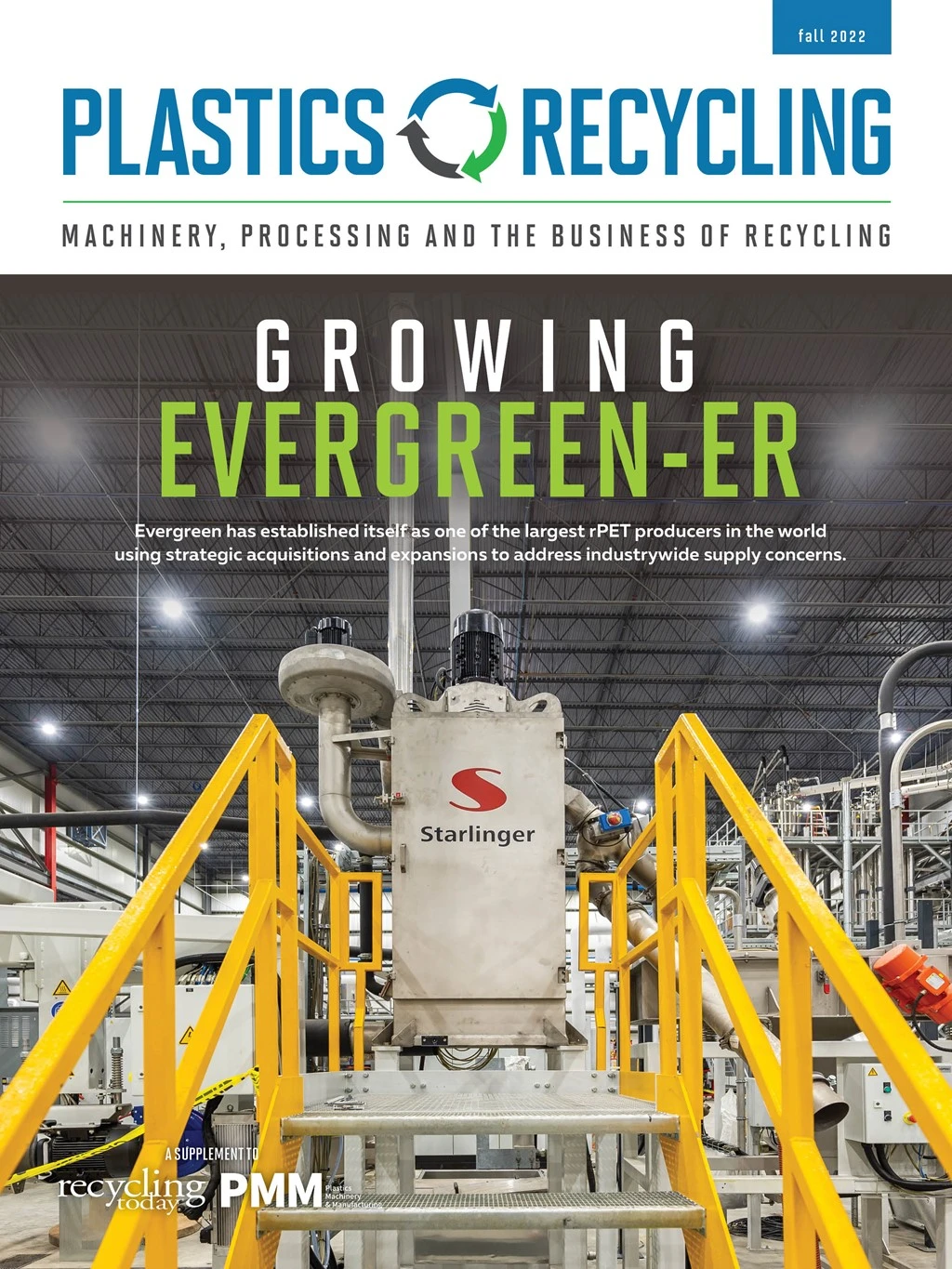Virgin resin manufacturers are grabbing headlines for investments in recycling that make it appear they are fixing the problem of hard-to-recycle plastics.
Consumer pressure has reached the point that chemical companies know they need to include material with recycled content to keep selling resin.
But what does additional recycling capacity—which mostly will come from a chemical recycling process—mean for traditional mechanical processors?
“I think there is a good place in our industry for chemical recycling on some of these very hard-to-process items,” says Scott Saunders, general manager of the KW Plastics Recycling Division in Troy, Alabama. “But the problem is this: When they make these announcements, you never can pin them down on a feedstock stream.”
Saunders says he expects to see a fight for flows of raw materials as new systems come online and that whoever has the best economic model over time will win.
Virgin resin manufacturers also might try to convert some of their wide-spec resin to postconsumer resin (PCR). “There is a huge market for wide-spec material,” Saunders says. “It has always been sold as virgin material but not to a specific grade, and it has an established market. What is going to prevent them from taking those pellets, putting them through the recycling plant, then claiming it is PCR and putting a big markup on it to sell it as certified PCR?”
Mechanical recyclers might see a more competitive market for raw materials, but Saunders says his company, which recycles an estimated 500 million pounds a year of high-density polyethylene and polypropylene, will be able to compete.
“Mechanical recycling is the most efficient method for rigid plastics such as regrind, purgings, containers or parts,” he says. “If all you are going to do is take a molecule that is already being recycled and recycle it in a different fashion, what have you accomplished?”
While it might be a good business model for the resin companies, Saunders says it negates the environmental statements they are making.
Will the new capacity result in more plastics being recycled?
“I hope so,” he says. The two largest trash collection companies, WM and Republic Services, have announced investments to improve collection and processing. Meanwhile, KW Plastics is building a processing line to add 100 million pounds of recycling capacity per year when it comes online in early 2023.
“That is a direct result of these announcements,” Saunders says. “We don’t know exactly how much material that will bring to the market, but we want to be ahead of the curve. When it comes available, we are ready to take it.”
Saunders, who serves on the board of the Association of Plastic Recyclers, says KW Plastics remains bullish on mechanical recycling, adding, “Consumers have become more concerned, and that is really what it is going to take for the recycling rate to move up.”
Plastic recycling is a tough business, and if Saunders is correct, it is going to get even tougher for legacy recyclers.

Explore the Fall 2022 Plastics Recycling Issue
Check out more from this issue and find your next story to read.
Latest from Recycling Today
- Aqua Metals secures $1.5M loan, reports operational strides
- AF&PA urges veto of NY bill
- Aluminum Association includes recycling among 2025 policy priorities
- AISI applauds waterways spending bill
- Lux Research questions hydrogen’s transportation role
- Sonoco selling thermoformed, flexible packaging business to Toppan for $1.8B
- ReMA offers Superfund informational reports
- Hyster-Yale commits to US production





